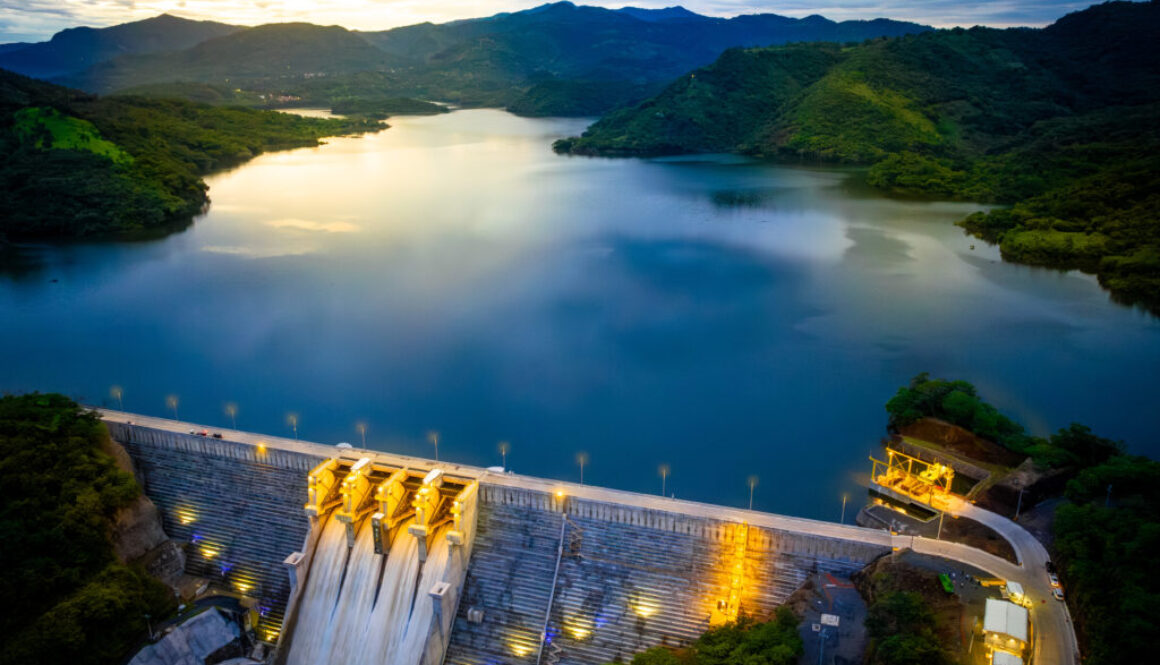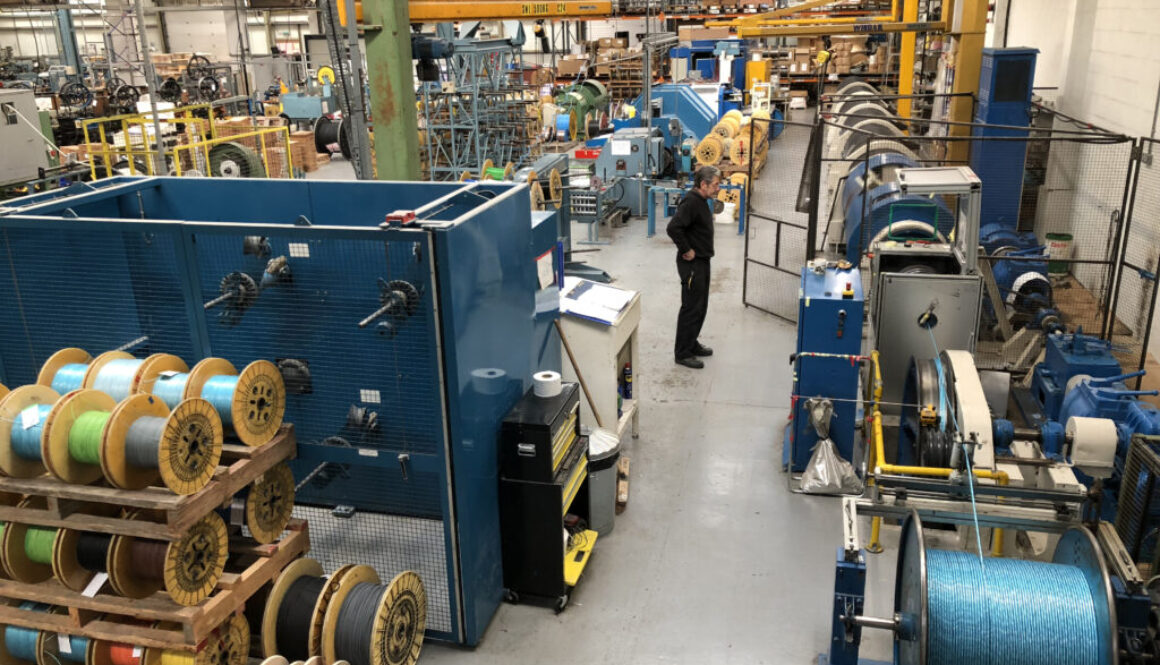Maria Paz Araya
Coordinator for investment outside of the Greater Metropolitan Area of Costa Rica
Procomer
maraya@procomer.com
The Central American Group: We’re pleased to have a knowledgeable individual with us today. Her name is Maria Paz-Araya, and I’m sorry if I butchered that pronunciation, Maria. Excuse me. Was it even close to being correct?
Maria Paz Araya: I think you nailed it.
The Central American Group: In any event, Maria is the Coordinator for foreign direct investment outside of the Greater Metropolitan area in Costa Rica. She will explain exactly what that term means in a few minutes. But before she does, I want to say that she is a member of Procomer. Procomer is the National Agency for Investment and Export Promotion for Costa Rica. Maria, welcome. Can you give us a little bit more information about your background?
The Central American Group: Sure. Thank you, Steve. It is a pleasure to participate in your podcast today. Thank you for the opportunity. As you said, my name is Maria Paz Araya. For the past eight months, I have served as the coordinator of foreign direct investment outside of the Greater Metropolitan Areas in Costa Rica. I have 10 years of experience working in foreign trade and around the free trade zone regime in Costa Rica. This experience was gained precisely outside the Greater Metropolitan area in Costa Rica. I’m thrilled to discuss the opportunities and challenges these regions of the country present.
The Central American Group: I’d like to have you first before we get into further questions, explain the terms in Costa Rica: there’s the Greater Metropolitan Area, and then there’s outside of the Greater Metropolitan Area. Can you tell me what the latter means in the context of Costa Rica and name some communities that are a part of that area?
Maria Paz Araya: Okay, well, I’m going to start by saying what the greater Metropolitan area, or GMA, is from now on in Costa Rica. The primary urban concentration includes the major provinces of San Jose, Heredia, Alajuela, and Cartago, located in the country’s central area. This delineation was established in the 1980s as a fundamental tool for urban planning and fostering economic development within the region. Therefore, areas outside the GMA lie beyond this area and are mainly situated in the northern part of the country. This includes the Pacific and Caribbean coastlines and the Southern regions of Costa Rica’s territory. Some examples of well-known communities outside the Greater Metropolitan area are Limón, Liberia in Guanacaste, San Carlos, San Ramón, Punta Arenas, and Turrialba, to name a few.
The Central American Group: Why is it important for Procomer to promote investment outside the Greater Metropolitan Area in Costa Rica at this time, specifically?
Maria Paz Araya: Promoting investment outside the Greater Metropolitan Area in Costa Rica is vital for Procomer. It’s important because it opens up new opportunities for businesses and investors in various regions. This directly translates to creating new job opportunities, which is our absolute main goal right now. It is important because it helps distribute economic growth evenly throughout the country.
The Central American Group: What specific advantages do locations for investment outside the Greater Metropolitan Area in Costa Rica offer foreign investors looking to establish manufacturing operations, particularly in terms of cost-effectiveness and resource availability?
Maria Paz Araya: Sure. There are many advantages for investors to establish investment outside of the Greater Metropolitan Area in Costa Rica. First of all, I could say government incentives. Costa Rica provides tax incentives offered through the free trade zone regime law to companies established outside the greater Metropolitan area. I can go into more detail if you like. Also, there is access to skilled labor. Many regions outside the GMA have access to a skilled labor force, particularly in specialized industries such as agriculture, agro-industry, light manufacturing, and services. With training programs and vocational schools, these areas can provide a pool of skilled workers for manufacturing operations. Another advantage for companies that execute and investment outside of the Greater Metropolitan Area in Costa Rica is the access to natural resources. Many regions outside the GMA have fertile land for agriculture and forestry. It can be advantageous for manufacturing operations that require specific environmental conditions.
Now that I have mentioned the environment, we love investors who prioritize environmental sustainability in their operations. Non-metropolitan areas often offer more opportunities for eco-friendly manufacturing practices, such as access to sustainable raw materials. And so, well, in 2022, work was done to reform and improve incentives for investment outside of the Greater Metropolitan Area in Costa Rica, and law 10,234 was launched, which I would love to tell you about.
The Central American Group: Oh, please do.
Maria Paz Araya: Okay. The tax treatment outlined in the Costa Rica Free Trade Zone Regime Law significantly differs for companies established within the urban area compared to those that make an investment outside of the Greater Metropolitan Area in Costa Rica. Outside the GMA, established companies have greater exemptions, like 0% corporate income tax. Also, they enjoy a temporary reduction of Social Security payments for their employees. Additionally, the law I mentioned before, Law 10,234, enabled three new categories for attracting FDI outside the GMA. And these are sustainable adventure parks. These should be places for recreational and commercial activities, promoting conservation and research in a natural environment. Also, it applies to strategic suppliers. This refers to goods made in Costa Rica and used to produce final goods, excluding machinery. But this includes material for agriculture, fishing, manufacturing, and other operations, et cetera. The third category is healthcare-centered services. By this, we mean specialized centers offering medical services like ophthalmology, orthodontics, cosmetic surgery, et cetera. So yes, these incentives significantly enhance the appeal for companies to make an investment outside of the Greater Metropolitan Area in Costa Rica by lowering operation costs and improving profit in the end. This, in turn, attracts more foreign investment, simulates economic growth in regional areas, and creates job opportunities, fostering sustainable development beyond urban centers.
The Central American Group: Well, it’s a really good thing that Costa Rica is paying attention with greater focus to balance out investment throughout the country because most people that are in the know about Costa Rica and foreign direct investment have been able to note that over the last 30 years, Costa Rica has been very, very successful attracting medical device companies that are globally known. Most of that investment, however, is centered in the Greater Metropolitan Area. Now that you’re working with investment outside of the Greater Metropolitan Area in Costa Rica and trying to balance out investment in the country, can you give some examples of recent investments that have been made outside of the Greater Metropolitan Area, whether they’re medical devices or other types of investments?
Maria Paz Araya: Sure. Last year, we managed to attract 13 companies to locations outside of the Greater Metropolitan Area. This is nearly twice the average of six companies in previous years. So, yes, 13 new companies have placed their trust in Costa Rica in its regions outside of the GMA. The diversity of locations where they will be establishing investment outside of the Greater Metropolitan Area in Costa Rica is worth noting. We have projects in all of the provinces outside of the GMA. These companies are engaged in various activities, including food production, aeronautical services, distribution, light manufacturing, logistics, and, of course, medical devices, We also have companies involved in metalworking, and information and communication technologies.
The Central American Group: When you look at the workforce, and you compare the Greater Metropolitan Area with that outside the Greater Metropolitan Area, what are the differences, if there are any, regarding skill levels, labor costs, and availability?
The Central American Group: Sure. I think the most particularly positive aspect is that, unlike the current workforce inside of the GMA, where employees may easily switch between companies, which leads to increased labor costs, those outside that make investment outside of the Greater Metropolitan Area in Costa Rica tend to display a greater commitment to companies that offer meaningful opportunities for growth and development. Over the past eight months, along with my outstanding team, in my position as the Coordinator of FDI Attraction outside of the GMA, we have traveled to many parts of the country, visiting numerous companies, various organizational groups, and academia. Suppose there’s one thing I can tell you from first-hand experience. In that case, workers outside of the GMA are available and eagerly awaiting promising job opportunities. While we are aware of the challenges in terms of upskilling needs, we are actively engaged in overcoming them, understanding their significance in attracting foreign direct investment, and trying to articulate the needs of the private sector with what academia offers.
The Central American Group: It’s wonderful to hear that Costa Rica is trying to bring foreign direct investment to all regions and corners of the country. In a short period here, we’ve discussed several issues related to investment outside of the Greater Metropolitan Area in Costa Rica. Typically, we’ve experienced with these podcasts that our listeners, once they take in the information included in these recordings, often have follow-up questions they’d like to ask. We want to facilitate that communication between our listeners and our interviewees by providing contact information so that there can be a direct discussion between you and anybody who might have a question to ask about anything that you’ve said today. If somebody wants to get in contact with you, how do they go about doing that?
Maria Paz Araya: Listeners seeking more information about investment outside of the Greater Metropolitan Area in Costa Rica, please feel free to contact me via email at maraya@procomer.com. I will be more than happy to provide them with the information they may need.
The Central American Group: Maria Paz, if it’s okay with you, we include key information at the top of the transcript section on the page where the podcast is hosted. We’ll put your name. We’ll make it a link to your LinkedIn profile so people can get to you directly. We’ll include a link to Procomer’s website. We will also add your email address. If that’s okay with you, we’ll also do those things to facilitate discussions between you and anybody interested in this topic.
Maria Paz Araya: Sure, Steve. Thank you. Please go ahead.











